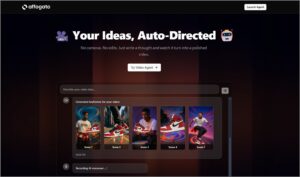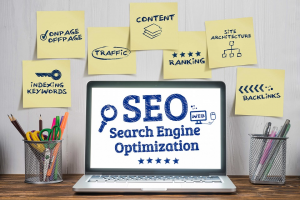
In a digital landscape dominated by short-form videos and AI-generated content, many question whether traditional blogging still holds value in 2025. Despite evolving content consumption habits, blogging continues demonstrating remarkable resilience and adaptation, finding new relevance alongside emerging formats rather than being replaced by them. Integrating AI tools and video elements has transformed blogging rather than diminished it, creating hybrid content strategies that leverage the unique strengths of each medium.
The Evolution of Blogging in 2025
Blogging has undergone significant transformation since its origins as personal online diaries. Today, it represents a cornerstone of digital marketing strategies for businesses and individuals alike, evolving to meet changing audience preferences and technological capabilities.
From Text-Only to Multimedia Experience
What began as simple text-based websites has evolved into sophisticated multimedia platforms. Modern blogs increasingly incorporate visual elements, with statistics showing that blogs featuring relevant images see a 94% increase in views. This evolution reflects bloggers’ adaptation to audience preferences for more engaging, multi-sensory content experiences.
The digital content landscape has been radically transformed by Artificial Intelligence, with blogging experiencing particular disruption and reinvention. AI tools have revolutionized content creation processes, SEO strategies, and audience engagement techniques, making it essential for bloggers to adapt to these innovations. This technological shift has not rendered blogging obsolete but rather created new opportunities for content creators to enhance their output and reach.
Blogging’s Continued Significance
Despite challenges from newer content formats, blogging remains a key component of content marketing and digital strategy in 2025. It continues to serve as one of the most effective mediums for expressing ideas, boosting brand visibility, and engaging audiences in an increasingly competitive digital space. The format offers unique advantages that neither video content nor AI-generated material can fully replicate.
Blogging vs. Video Content: Competition or Complementary?
The relationship between blogging and video content is increasingly symbiotic rather than competitive, with each format offering distinct advantages while potentially enhancing the other.
The Rise of Video Content
Video has undeniably become a dominant force in digital content consumption. Data confirms that content incorporating video significantly outperforms text-only content, with videos helping content rank twice—both as a blog post and as a video. This dual-ranking capability represents a considerable advantage in an SEO-driven digital landscape.
Video podcasts have experienced explosive growth, with over 300,000 now streaming on Spotify and a quarter of a billion Spotify users having streamed video podcasts. Significantly, two in three Spotify users prefer video podcasts to audio versions. These statistics underscore a clear shift in audience preferences toward visual content consumption.
Strategic Integration of Formats
Rather than abandoning blogs for video, successful content creators are strategically integrating both formats. Incorporating videos into blog content can significantly increase page views and retention time on websites. This hybrid approach allows content to benefit from the SEO advantages of written content while engaging viewers through the dynamic visual elements of video.
The most effective content strategies in 2025 recognize that blogs and videos serve different purposes and audience needs. While vlogs offer visual and auditory elements that may make them more immediately engaging, blogs excel at presenting detailed information, in-depth analysis, and comprehensive explanations that video formats may struggle to convey efficiently.
AI’s Transformative Impact on Blogging
Artificial intelligence has fundamentally altered the blogging landscape, introducing both challenges and opportunities for content creators.
AI-Powered Content Creation
AI tools have democratized content creation, enabling bloggers to produce high-quality, consistent, and relevant posts at accelerated rates. Platforms utilizing Natural Language Processing technologies like GPT-4 can generate blog content that is not only grammatically accurate but also contextually relevant.
By automating aspects of the drafting process, AI allows bloggers to maintain consistent publishing schedules without compromising quality. These tools help writers explore new creative directions by suggesting topics, improving structure, and even drafting entire articles, ensuring both efficiency and scalability in content production.
Enhanced SEO and Audience Engagement
AI has elevated SEO strategies to unprecedented levels of sophistication. AI-driven platforms analyze search algorithms and user intent to deliver actionable insights, such as optimal keyword placement and title suggestions, predicting which content will perform well and giving bloggers a competitive advantage.
One of AI’s most valuable contributions to blogging is enabling personalized content delivery. AI algorithms analyze user behavior to suggest tailored blog posts that align with individual preferences, enhancing reader experience and increasing time spent on the site. This personalization capability helps bloggers build stronger connections with their audience through more targeted content strategies.
Ethical Considerations in AI-Generated Content
While AI brings numerous advantages, it also raises important ethical concerns, particularly around originality and authenticity. The ease of generating AI content could lead to blogs lacking personal voice or inadvertently spreading misinformation if not properly curated. The risk of AI displacing human writers remains a growing concern, highlighting the importance of balancing automation with human creativity to preserve authenticity and maintain audience trust.
Why Blogging Remains Relevant in 2025
Despite the rise of video content and AI tools, blogging continues to offer unique benefits that ensure its ongoing relevance in the digital content ecosystem.
Unmatched SEO Advantages
Blogging remains one of the most effective methods for improving organic search visibility. Search engines continuously update their algorithms to prioritize fresh, high-quality, and relevant content. Regular blogging provides a steady stream of new content that helps businesses rank for valuable keywords and phrases.
Each blog post represents another opportunity to capture organic search traffic. In a highly competitive digital landscape, the potential to capture high-value keywords through well-researched, informative blog posts gives websites a significant advantage in search rankings.
Establishing Thought Leadership
Blogging offers an ideal platform for demonstrating expertise and establishing thought leadership. By consistently sharing insights, research, and updates on industry trends, businesses and individuals can position themselves as authoritative voices in their respective fields.
Over time, readers come to view well-maintained blogs as trusted resources, building credibility and authority that translate into business advantages. This perception of expertise cannot be as effectively established through short-form video content alone, which often prioritizes entertainment over comprehensive information.
Cost-Effective Content Marketing
Despite technological advances, blogging remains one of the most cost-effective content marketing strategies available. While video production often requires specialized equipment, editing software, and technical expertise, blogging can be accomplished with minimal resources beyond knowledge and writing ability.
This accessibility makes blogging particularly valuable for small businesses and individual content creators with limited marketing budgets. AI tools further enhance this cost-effectiveness by streamlining content creation processes without necessarily requiring significant additional investment.
Future of Blogging: Adaptation and Evolution
The future of blogging lies not in resistance to new technologies and formats but in strategic adaptation and integration of these innovations.
Hybrid Content Approaches
Successful bloggers in 2025 are embracing hybrid content strategies that combine traditional blogging with multimedia elements. This approach recognizes that different audience segments prefer different content formats, allowing creators to reach broader audiences through diversified content offerings.
Creating good content remains paramount, regardless of format. Focusing on easily digestible, high-quality blog posts enhanced with relevant visual elements represents the most effective path to success in modern content creation.
AI-Enhanced Blogging Strategies
Smart utilization of AI tools can significantly enhance content creation efficiency and user experience without sacrificing quality or authenticity. AI technologies in 2025 make it easier for content creators to analyze individual viewer data, including browsing history and preferences, to create tailored content that resonates with specific audience segments.
Looking ahead, AI will continue to evolve, offering increasingly sophisticated tools for content creation and audience interaction. Emerging trends like multi-modal AI systems that integrate text, visuals, and audio will reshape how blogs are created and consumed, providing new opportunities for bloggers to innovate and engage readers in creative, interactive ways.
The Rise of Specialized and Niche Content
As content production becomes increasingly accessible through AI tools, success in blogging increasingly depends on specialization and niche expertise. Building a strong brand identity and developing a deep understanding of specific topics allows bloggers to differentiate themselves in an increasingly crowded digital landscape.
This trend toward specialization counterbalances the standardization risks posed by widespread AI content generation, highlighting the continued importance of unique human perspectives and expertise in effective blogging.
Conclusion
Blogging is not only surviving but thriving in the age of video content and AI by adapting to technological changes and audience preferences. Rather than being rendered obsolete, blogging has evolved into a more dynamic, multimedia-rich, and personalized medium that continues to offer unique benefits for content creators and consumers alike.
The future of blogging lies in strategic integration—combining the SEO benefits and depth of traditional blogging with the engagement advantages of video content and the efficiency of AI tools. As we move further into 2025, successful content strategies will increasingly adopt hybrid approaches that leverage the strengths of each format and technology.
For content creators navigating this evolving landscape, the key to success lies not in choosing between blogging, video content, or AI tools, but in strategically combining these elements to create comprehensive, engaging, and discoverable content. By embracing rather than resisting technological change, blogging will continue to serve as a foundational element of effective digital communication for years to come.





